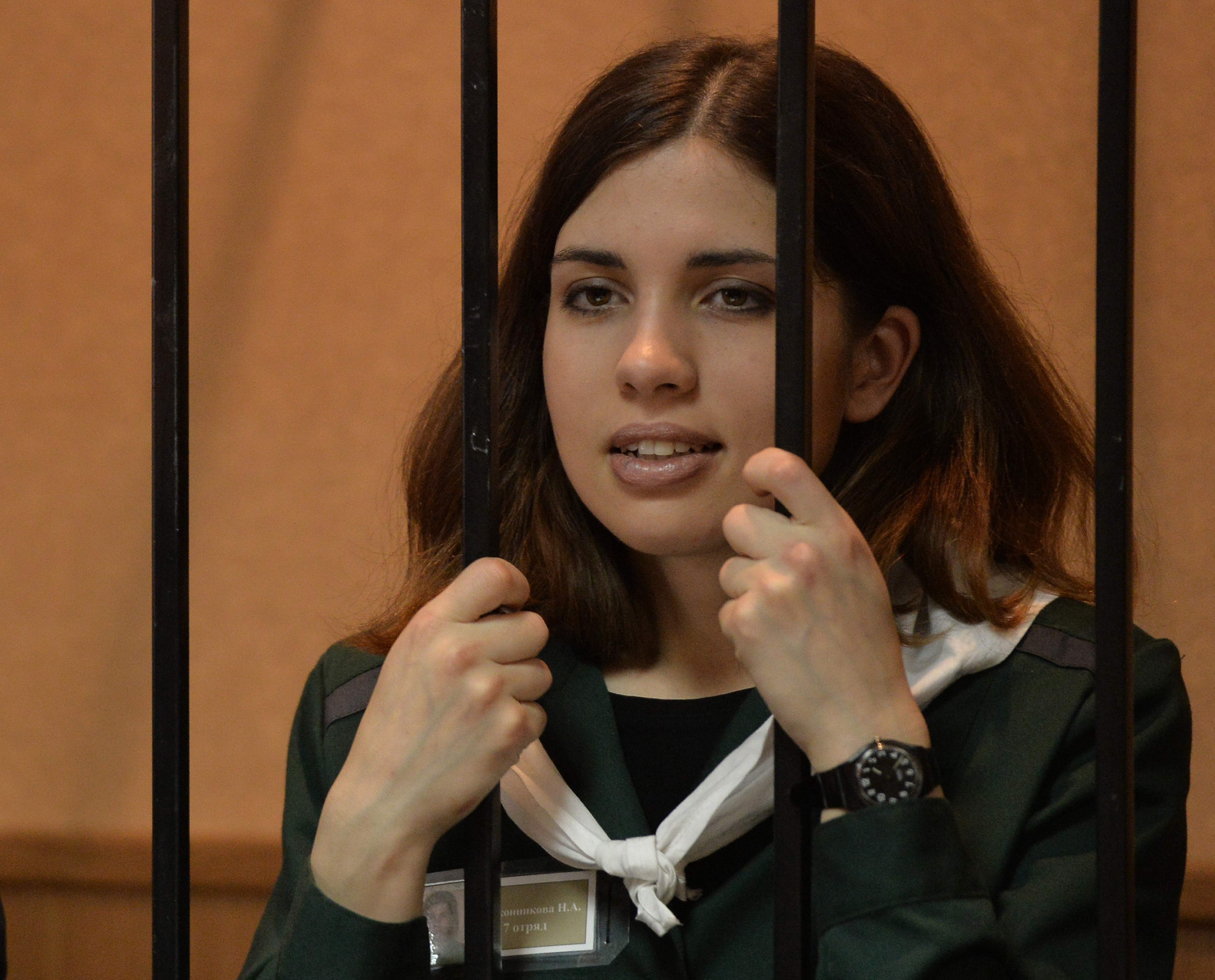Nadezhda Tolokonnikova’s decision to begin a hunger strike in protest against the conditions she and her fellow prisoners endure inside Russia’s modern gulag will, doubtless, be met with a measure of scorn or lack of sympathy by some. After all, there were plenty of people who thought Pussy Riot – the Russian band of which Tolokonnivoka is the most high-profile member – got what they deserved last year. Not all of these hanging judges live in Russia either.
To recap: three of Pussy Riot’s members were imprisoned last year having been convicted of, essentially, embarrassing the Orthodox Church and Vladimir Putin. The band’s methods may not be to everyone’s tastes but some causes merit support even if they are also supported by Madonna and Sir Paul McCartney.
And it cannot be said – at least not credibly – that Pussy Riot lack seriousness. On the contrary, they are weighed down with the stuff. As I wrote last year the band would like to live without politics but how can you live without politics in a state that outlaws politics?
Tolokonnikova is not the first Pussy Riot girl to stage a protest against the conditions of her incarceration. Earlier this year her colleague Maria Alyokhina went without food for 11 days in an effort to ameliorate prisoner conditions in her own, different, labour camp. In both instances, the girls have helped illuminate some of the reality of life in modern Russia. Their position – at least in terms of their access to the outside world and their ability to command an audience – may be privileged but they can hardly be accused of abusing that privilege. On the contrary, they have made good use of it.
Because we should pay more attention to Russia’s modern gulag. This, as Tolokonnikova writes this week, is a place in which prisoners – that is to say, slaves – are forced to work 16 hour days sewing police uniforms, a place in which they are fed – to the extent they are fed at all – rotten potatoes, a place in which even elementary standards of hygiene are not so much absent as forbidden. A place, in short, not always so very different from the bad old days. Death may not be delivered in nine gram packages to the back of the head but in some other respects the differences between then and now are of degree not kind. Putin is not Stalin but he’s no good either. To wit:
It has been a year since I arrived at Penal Colony No 14 in the Mordovian village of Parts. As the prisoner saying goes: “Those who never did time in Mordovia never did time at all.” I started hearing about Mordovian prison colonies while I was still being held at Pre-Trial Detention Centre No 6 in Moscow. They have the highest levels of security, the longest workdays, and the most flagrant rights violation. When they send you off to Mordovia, it is as though you’re headed to the scaffold. Until the very last moment, they keep hoping: “Perhaps they won’t send you to Mordovia after all? Maybe it will blow over?” Nothing blew over, and in the autumn of 2012, I arrived at the camp on the banks of the Partsa River.
Mordovia greeted me with the words of the deputy chief of the penal colony, Lieutenant Colonel Kupriyanov, who is the de facto head administrator of our colony. “You should know that when it comes to politics, I am a Stalinist.”
[…] “If you weren’t Tolokonnikova, you would have had the shit kicked out of you a long time ago,” say fellow prisoners with close ties to the administration. It’s true: others are beaten up. For not being able to keep up. They hit them in the kidneys, in the face. Prisoners themselves deliver these beatings and not a single one of them is done without the approval and full knowledge of the administration. A year ago, before I came here, a gypsy woman in the third unit was beaten to death (the third is the pressure unit where they put prisoners that need to undergo daily beatings). She died in the medical unit of PC-14. The administration was able to cover it up: the official cause of death was a stroke. In another unit, new seamstresses who couldn’t keep up were undressed and forced to sew naked. No one dares complain to the administration because all they will do is smile and send the prisoner back into the unit, where the “snitch” will be beaten on the orders of that same administration. For the colony administration, controlled hazing is a convenient method for forcing prisoners into total submission to their systemic abuse of human rights.
[…] It is possible to tolerate anything as long as it only affects you. But the method of collective punishment is bigger than that. It means that your unit, or even the entire colony, is required to endure your punishment along with you. This includes, worst of all, people you’ve come to care about.
And so:
[B]eginning 23 September, I am going on hunger strike and refusing to participate in colony slave labor. I will do this until the administration starts obeying the law and stops treating incarcerated women like cattle ejected from the realm of justice for the purpose of stoking the production of the sewing industry; until they start treating us like humans.
Really, you should read the whole thing. And you might remember it the next time some idiot suggests that, whatever his faults, Vladimir Putin isn’t really so bad as his western – and, more importantly, his Russian – critics would have you believe.








Comments